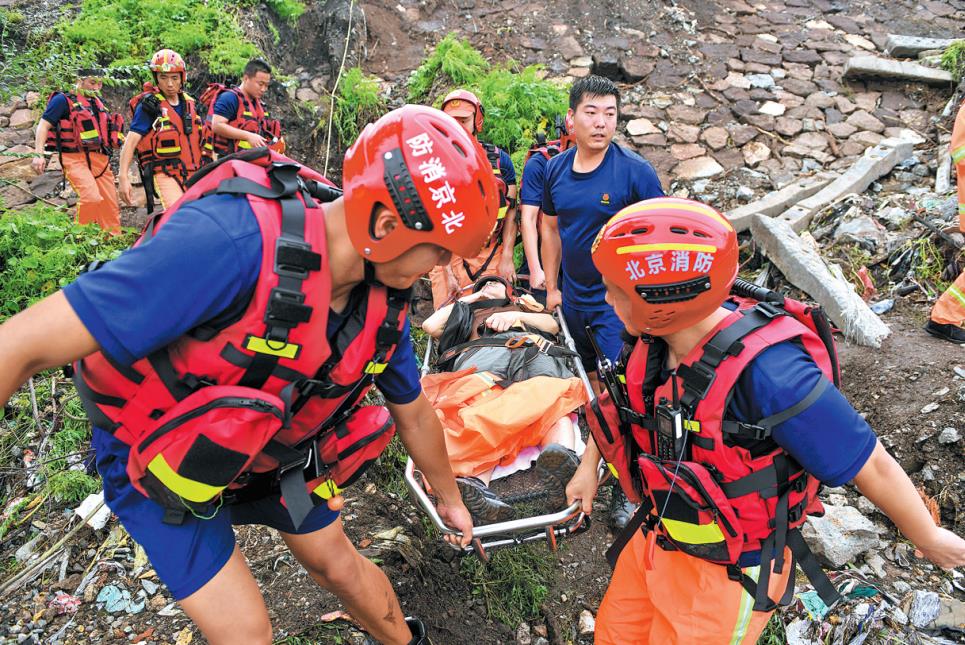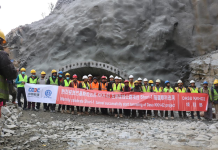BEIJING: China has enhanced rescue and relief efforts in flood-stricken regions after heavy rainfall brought by Typhoon Doksuri hit Beijing, Tianjin and Hebei province in North China, as well as parts of Northeast China.
In recent days, flooding in those regions stranded residents, washed away bridges and highways, killed at least 30 people and forced tens of thousands of people out of their homes.
With people’s lives and property in mind, the Communist Party of China Central Committee, with General Secretary Xi Jinping at the core, has put people first in fighting the disaster.
In July, Xi had made an instruction on flood prevention and disaster relief work, emphasizing the need to strengthen coordination, enhance consultation and assessment, improve monitoring and early warning capabilities, and prioritize the protection of people’s lives and property while minimizing losses. During his recent inspection tour in Sichuan province from July 25 to 27, Xi, who is also Chi-nese president and chairman of the Central Military Commission, called for Party committees and governments at various levels to shoulder the responsibilities for flood prevention and dis-aster relief. He also emphasized the need to carry out relief work scientifically, prevent second-ary disasters and minimize casualties and property loss.
Unprecedented torrential rain struck Beijing from July 29 to Wednesday, causing severe flood-ing in Beijing’s Mentougou and Fangshan districts. More than 2,800 passengers aboard three trains were stranded due to the rain and flooding.
The stranded passengers had a difficult time. With food shortages, limited drinking water, inter-rupted communication signals and a drop in temperature, compounded by roads being cut off due to heavy rainfall, supplies could only be delivered by foot through muddy terrain and diffi-cult conditions.
Learning about the situation, Xi expressed his concern about the safety of the stranded passen-gers and made an important instruction immediately. “Local authorities and relevant departments must get communication with the trains and make every effort to organize rescue operations, provide food and medicine, and transfer those who need to be moved to ensure the safety of the stranded passengers,” he said. –The Daily Mail-China Daily news exchange item






